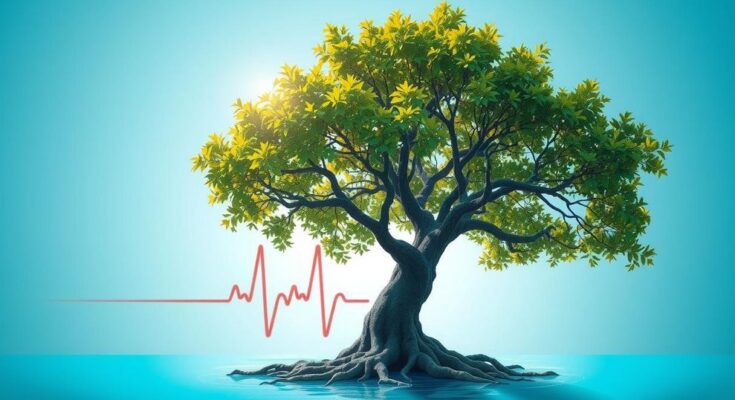Duke University has introduced a new undergraduate course titled “Climate Change and Global Health,” taught by Dr. Mark Janko. This course educates students on the relationship between climate change and human health. It features practical experiences, interdisciplinary perspectives, and encourages students to devise solutions to combat climate change.
On a cold January morning, approximately 20 students from Duke University departed their classroom dressed warmly, congregating around a collection of trees to measure their trunks using a rope. After taking notes on the circumference, they utilized a ruler to estimate how much carbon each tree could sequester. Consequently, one student remarked that a slender young tree absorbed the equivalent carbon generated by a 10-minute shower, while a considerably larger tree could offset carbon emissions from a 10-day cruise.
This practical experience was part of Dr. Mark Janko’s inaugural course, “Climate Change and Global Health,” which launched this semester. The undergraduate course aims to enlighten students about the causes of climate change and the resultant effects on human health. The curriculum aligns with Duke’s Climate Commitment, pushing the exploration of issues related to climate change and extreme weather.
Dr. Janko developed the course specifically aimed at newcomers to the subject, inviting students from various disciplines such as psychology, Spanish, economics, biology, and global health. Distinctively, it is the first Duke course concentrating purely on the health implications of climate change, echoing the mission of the Duke Global Health Institute.
With a background in geography and biostatistics, Dr. Janko’s interest in the intersection of climate and health has roots in over ten years of research on environmental changes in places like the Amazon rainforest and Madagascar. He has specifically investigated how deforestation influences climate and ecosystems, including the spread of diseases like malaria when forests are cleared.
Dr. Janko emphasizes the pressing nature of climate change, stating it will represent a significant challenge for humanity. Therefore, he advocates for students to attain an interdisciplinary comprehension of this crucial topic. “Being able to think through how humans influence Earth-system processes… requires being conversant with a multitude of disciplines,” he asserts.
In the initial weeks of the semester, participants explore the relationship between climate change and global environments, culminating their learning experience by proposing solutions to mitigate the impact of climate change from both policy and community perspectives. Dr. Janko aspires for students to grasp fundamental human necessities and sustain humanity within a ‘safe operating space.’
Ultimately, he desires that students graduate from Duke equipped to discuss these intricate topics as engaged citizens, whether exercising their voting rights or influencing their future professional domains.
In summary, Dr. Mark Janko’s course, “Climate Change and Global Health,” represents an innovative educational approach at Duke University, connecting climate issues with human health. The program not only highlights the significance of interdisciplinary studies but also aims to cultivate informed citizens prepared to engage with pressing environmental challenges. Through practical applications and collaborative learning, the course strives to instill a comprehensive understanding of climate change’s effects and potential solutions.
Original Source: globalhealth.duke.edu




